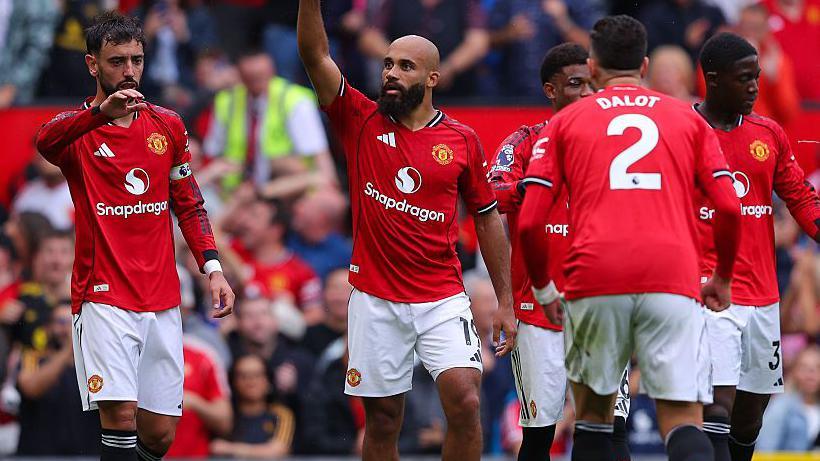Despite poor results, Manchester United’s underlying stats show improvement under Ruben Amorim. They lead in shots taken, but struggle with conversion and conceding goals. The team creates more chances than opponents, suggesting potential for future success if efficiency improves.
Despite a perceived lack of tangible progress, Manchester United's underlying statistics suggest a team performing far better than their recent Premier League results indicate. With only two league wins since April, skepticism surrounds Ruben Amorim's management, but a deeper dive into the numbers paints a more optimistic picture.
While Tottenham have accumulated fewer points over the last 10 games, United's performance metrics reveal that they deserve more credit. The team's underperformance, especially from key players, is more to blame than Amorim's strategies and formation, which have faced considerable criticism.
By excluding penalties, the analysis highlights United's prowess in creating and restricting scoring opportunities, independent of fortuitous penalties. This approach provides a clearer view of their fundamental gameplay, rather than relying on opposition errors.
Manchester United lead the Premier League in total shots taken over the last 10 games. Only their rivals, Manchester City, who they face on Sunday, have allowed fewer shots among the ever-present teams during this period. This dominance in shot creation underscores United's attacking intent and ability to penetrate opposition defenses consistently.
However, the primary issue lies in converting these chances into goals and preventing the opposition from scoring. United's players have scored seven goals fewer than historically expected, given the quality of opportunities they've had. Concurrently, they've conceded four goals more than anticipated, revealing vulnerabilities in both attack and defense.
It's important to note that these statistics include a game against Bournemouth where they played 65 minutes with a one-man advantage, and also a game against Aston Villa. However, past matches, such as Liverpool's recent encounter with Newcastle, demonstrate that dominating a game against ten men is far from a certainty.
In their last 10 Premier League games, only six teams have exhibited more dominance than United. Had they been as efficient as other teams in converting chances and preventing goals, their points tally would likely double from the meager eight they've managed to accrue.
The root cause of this significant underperformance remains uncertain. It could stem from a lack of sufficient quality within the squad, potentially justifying the anticipated summer overhaul targeting the front line and goalkeeper positions. Alternatively, a lack of confidence among players or simple misfortune could be contributing factors.
Another factor impacting the players' efficiency under Amorim is that since he assumed control, United have struggled with both the quality of shots taken in attack and the quality of shots conceded in defense. This combination of poor shot selection and defensive vulnerability exacerbates their scoring and conceding problems.
Despite this tactical disadvantage, the expected goal metrics account for the added difficulty, suggesting that United's players should still perform better. Yet, simultaneously creating the worst chances and failing to convert them creates a perfect storm of inefficiency.
Analyzing United's 30 Premier League games under Amorim reveals steady improvement since March, with the team consistently creating more and better chances than their opponents, even though the results do not reflect this. This underlying trend offers a glimmer of hope for future success.
While achieving clinical precision in both boxes is critical and the team must refine their shot quality, even fortunate or unfortunate teams cannot perpetually defy their expected goal metrics. History suggests that consistent creation of good chances and restriction of bad chances correlate with long-term success in football.
Although Ruben Amorim's tenure hasn't sparked the transformative change many fans desired upon his arrival in December, recent signs indicate gradual progress. While tangible improvements in results are essential, the statistical underpinnings of United's performance hint at a team poised to outperform expectations in the future.
